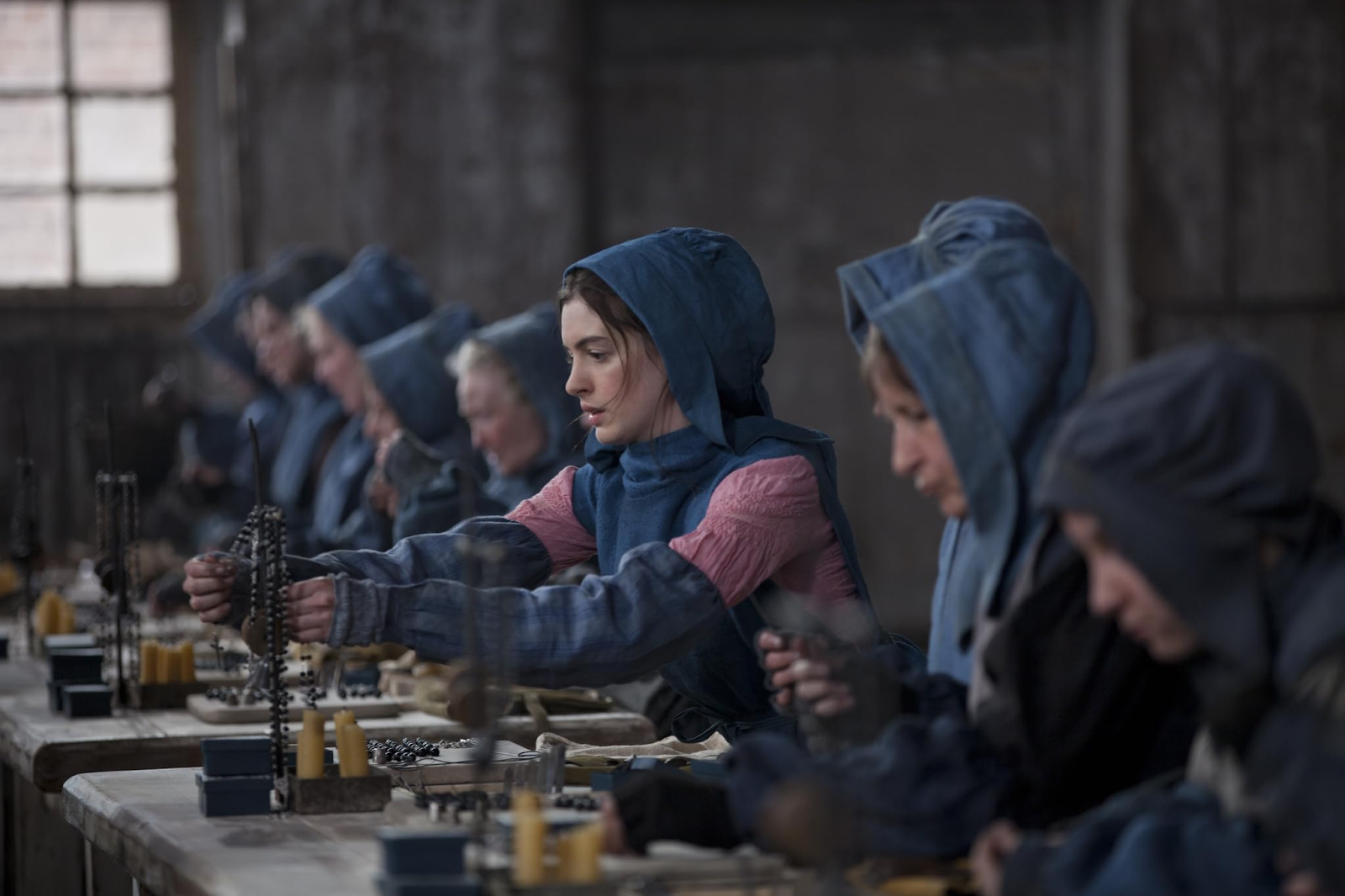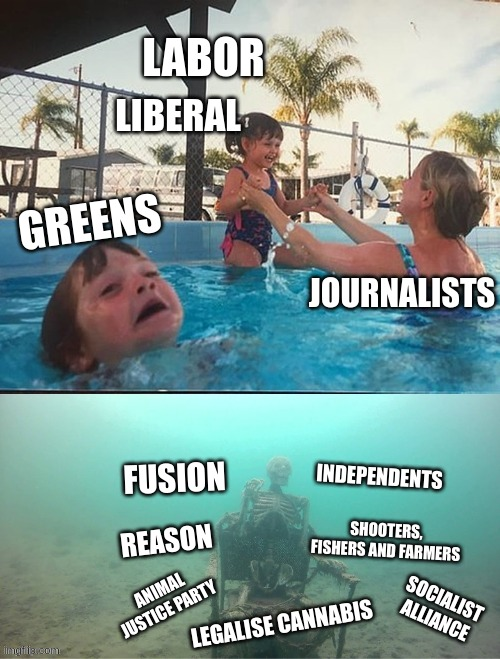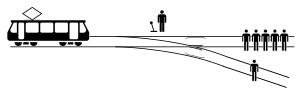What Les Misérables Teaches Us About UBI
Owen Miller | Sun Sep 10 2023

For the critics of Universal Basic Income (UBI), a common complaint is that it’s just too unrealistic: that society wouldn’t be able to adapt to UBI, so we should stop pretending that it could ever happen.
For this reason, it’s insightful to look at similar societies to see how they differ, and what the desirable aspects are. Is our own society closer to UBI than we had realised, and have people lost the will to work, as predicted? What are the different occupations in the different societies, and does it tell us anything about our own jobs?
Let’s choose the world of Les Misérables as a curious case-study: sure it’s not really realistic for people to break out into song regularly, but the story itself was written in 1862 by Victor Hugo after observing tragic events in France.
Let’s consider the universe song-by-song. Before we begin though, spoiler alert! The titles alone will reveal some plot.
If you’d like to follow along with a playlist of the songs in order, this is it .
Look Down 
In this opening scene, we’re introduced to Jean Valjean, and we learn that he’s been imprisoned for stealing a loaf of bread. Just like Breaking Bad, if the original dilemma had happened in a different country, it would be resolved easily and the whole story would be over.
If Walter White had cancer in the UK or Australia, he’d be treated under medicare and that would be that; no need to build a drug empire. If Jean Valjean was hungry and we had UBI, then he’d just buy some bread and he too would be spared from the need to transition into a life of fraud and false identities.
Notice too that the prisoners are doing gruelling work in the dry dock. If we had UBI, would anyone choose to pull ships out of the water, or would such tasks need prisoners as labourers? By having prisoners perform any labour, there’s a real risk that the prison population could be deliberately increased, so as to enable more cheap labour to occur. Such is the state of affairs in the US , especially with their private prisons.

At #6 for prisoners per capita, the US has comparable rates to Turkmenistan and Panama.
But back to the point: if people’s basic needs were met, the quintessential justifiable crime, stealing a loaf of bread, would cease to be a thing that ever happens.
At The End of The Day 
In listening to the plight of the poor, let’s focus on this particular part:
There are children back at home
And the children have got to be fed
And you're lucky to be in a job
And in a bed!
We see the same reality in modern Australia, that there are people who are unemployed, despite feeling that they want to work; despite the feeling that it would be good luck if they end up in a job.
The sentiment that you’re lucky to have a job comes in stark contrast to the preceding line, “Sitting flat on your bum doesn't buy any bread”, expressing the typical trope that unemployed people are just lazy.
In thinking about why jobs even exist in the first place, let’s consider this famous passage by Adam Smith, in The Theory of Moral Sentiments , 1759:
The rich only select from the heap what is most precious and agreeable. They consume little more than the poor, and in spite of their natural selfishness and rapacity, though they mean only their own conveniency, though the sole end which they propose from the labours of all the thousands whom they employ, be the gratification of their own vain and insatiable desires, they divide with the poor the produce of all their improvements. They are led by an invisible hand to make nearly the same distribution of the necessaries of life, which would have been made, had the earth been divided into equal portions among all its inhabitants, and thus without intending it, without knowing it, advance the interest of the society, and afford means to the multiplication of the species.
The point here is that if we structure our economy around the fulfilment of bourgeois whims, then sure, it’s hard to justify it morally, but at least it gets the job done: we live on and have children. Some would argue however that in 2023, it’s not really honest to just shrug this off, and that structuring our economy around the fulfilment of bourgeois whims is working out really badly for us.
Stars 
Here we hear Javert make a variety of claims about honour and morality, but let’s draw our attention to these lines:
Those who follow the path of the righteous
Shall have their reward
And if they fall as Lucifer fell
The flames
The sword!
Is this not an honourable way to run a society? That good, honest people shall have their reward, and you’re only punished if you sin? In thinking about American society though, it’s very much a dog-eat-dog world, and you’re totally able to be rewarded while not being especially honest or commendable. The converse is also true: you might be an upstanding citizen, but if you happen to fall ill like Walter White, then bad luck.
Would a UBI society be a more righteous society? Would Inspector Javert have as many fallen angels to chase, in such a society?
Another valuable insight is gained at the end of the song:
Lord, let me find him
That I may see him
Safe behind bars
I will never rest
'Til then
This I swear
This I swear by the stars!
We see here that Javert regards his job to be his life’s purpose, his calling. There is no mention of his desire for a bonus, or the bedazzled shoes he’ll be able to buy afterwards. Neither does he mention his desire for sick leave or time in lieu ? it’s possible to have a job that is so fulfilling and inspiring for him, that nothing else really matters, and we needn’t even worry about accounting overhead.
People can have other motivations for work, besides avoiding starvation .
Javert’s Suicide 
And must I now begin to doubt
What I never doubted all those years?
My heart is stone but still it trembles
The world I have known
Is lost in shadow
Is he from heaven or from hell?
And does he know
That granting me my life today?
This man has killed me, even so
After just seeing how much Javert loves his job and how much he believes in its purpose, it’s understandably devastating to have this belief disproven. Why had his job been justified though? If we think back to Stars, the line was:
And so it must be, for so it is written
On the doorway to paradise
That those who falter and those who fall
Must pay the price!
OK, so his life’s purpose was based around 1 sentence on a doorway, without much room for nuance. Sound familiar?

The reality that hits Javert in the face is a similar reality that many of us are understandably scared to face ourselves: what if our jobs have not been serving a higher cause after all? What if we’ve been sold a lie , and our jobs have actually been morally reprehensible activities, punishing good people? These ideas are further explored in The Virtues of Being a Dole-Bludger ? there is an abundance of companies who knowingly harm their customers, who lie to their customers, or who harm people who were never even customers in the first place! Is your job one of those which is helping to destroy the planet? Should you similarly jump off a high structure?
Who Am I? 
In this scene, a man is arrested and is thought to be the fugitive Jean Valjean. When Jean Valjean (now under the name Monsieur Madeleine) learns of the situation, he has a dilemma to face:
I am the master of hundreds of workers
They all look to me
Can I abandon them, how would they live if I am not free?
If I speak, they are condemned
If I stay silent, I am damned
There are similarities with the earlier songs, expressing the idea that people without a job will be “condemned”. What’s new in this situation though is the moral dilemma that arises without even doing anything wrong. Valjean had reformed his life, becoming the owner of a busy factory, then even being appointed as mayor of Montreuil-sur-Mer . Being a political official is an honourable pursuit, isn’t it?
But back to the dilemma, it’s not as though Valjean was back to stealing bread or going out of his way to do anything malicious ? he was just minding his own business, but now learning of the other man’s fate means that Valjean could be “damned”.
How can I ever face my fellow men?
How can I ever face myself again?
If Valjean was living in a UBI society, then his return to prison (for evading parole) would not see the workers condemned ? they’d be just fine . Just as lies build upon each other and sins build upon each other, we can say that the starting sin, forcing people to do bullshit jobs just to survive, is a seed from which other sins will readily grow.
Valjean considers the possibility “why should I save his hide?” We might go a step further and ask, what if Valjean had never even learned of the man’s fate? Would Valjean be guilty then? There’s a similar logic in the classic Trolley Problem ? having been presented with the problem, and the opportunity to pull the lever, can you really say “this has nothing to do with me. I’m not going to get involved, by pulling a lever”?
Philosopher Peter Singer has a similar example and argues that since we know of so much suffering in the world, we have a moral responsibility to do something about it. Sure your actions could stifle someone else’s ability to continue their job, but if you know these people are suffering and you do nothing, how can you ever face yourself again?
The Confrontation 
When Javert comes to arrest Valjean for violating his parole, Valjean tries to stress the importance of his predicament:
Before you say another word, Javert
Before you chain me up like a slave again
Listen to me, there is something I must do
This woman leaves behind a suffering child
There is none but me who can intercede
In Mercy's name, three days are all I need
The lesson here is perhaps that government punishments, lacking in nuance, can easily cause more harm than good. Valjean had already been on the run for years ? if he was arrested 3 days later, would it make any difference? Of course, considering each person’s circumstance in isolation would be arduous, so perhaps it’s worthwhile to give out benefits universally, without requiring people’s particular circumstances to be over-analysed.
Later in the song, there is another lesson for us:
You must think me mad
I've hunted you across the years
Men like you can never change
A man such as you
Our own society markets schooling as something purely for youths , and pushes people onto a relentless treadmill, locking them into one career path where changes are difficult. People need experience to get more experience. Résumés are analysed only superficially and with stigma. Why’d he only spend 7 months at this company I’ve never heard of? He must be the problem here, he must be a bad worker!
Besides liberating us from bullshit and immoral jobs, UBI also gives us the time to pivot our careers, learning new skills and changing track along the course of our lives.
Castle On A Cloud 
Aren't any floors for me to sweep
Not in my castle on a cloud
There is a room that’s full of toys
There are a hundred boys and girls
Nobody shouts or talks too loud
Not in my castle on a cloud
There is a lady all in white
Holds me and sings a lullaby
She's nice to see
And she's soft to touch
She says "Cossette, I love you very much"
The difficulty in listening to this song is the fact that it’s very easy for us to imagine how painful it must be for Cosette to miss out on these things. A place where she has friends and someone who loves her? She’s really not asking for a lot here.
When critics of UBI complain about the cost, I think it’s easy to forget what people actually want ? I think it’s easy to imagine a world where we’re no longer interested in cars as status symbols , or keeping up with the Joneses. The relentless attention economy is lowering our IQ and making us unhappy. In a UBI society, maybe we’ll be treating houses as homes rather than as investments . In allowing people to live without having to trick each other into purchasing irrelevant bullshit, maybe we’ll be able to enjoy the wind against our face as we get around on bicycles, unconcerned about ever larger SUVs beeping at us or reversing over their children .
If we just direct our government’s focus towards a harmonious life, solving actual problems in the world, then we mightn’t need to spend much at all.
Do You Hear The People Sing? 
Do you hear the people sing?
Singing a song of angry men?
It is the music of a people
Who will not be slaves again
When the beating of your heart
Echoes the beating of the drums
There is a life about to start
When tomorrow comes
Will you join in our crusade?
Who will be strong and stand with me?
Beyond the barricade
Is there a world you long to see?
Then join in the fight
That will give you the right to be free
There is a growing movement underway to make UBI a reality. There’s Basic Income Australia , plus political parties supporting it, like the Fusion Party , The Greens, and the Non-Human Party .
Throughout history though, freedom is always something that we’ve had to fight for. Even Australian society is not as democratic as we often think it is: the state media frames every election as a two-horse race between “both parties” (all 2 of them!), and even Wikipedia picks winners in advance, then frames other candidates as non-existent.
The public absorbs all this and they actually write sentences using the term “underdog” to refer to members of the current ruling party! What a “tough road” it was for Mary Doyle , trying to win the seat of Aston while being backed by the Labor Party ? a party who has appointed 13 Prime Ministers, and who was already in power , during Doyle’s election campaign ? would Labor be taken seriously as a real party? Would anyone listen to what Doyle was pitching? This fight came only 28 years after her battle against breast cancer . As nice as Mary is, the idea that she was ever an “ underdog” is completely absurd.

So although you might not need to join the barricade, there is definitely a real fight: society is gaslighting us into believing that the current powers need to stay in charge, and that other options are either fringe crazy options, or that such options don’t even exist .
There are real, registered political parties and there are real movements right now who you can support, in the fight for harmonious lives and liberation from slavery.
Do you hear the people sing
Lost in the valley of the night?
It is the music of a people
Who are climbing to the light
For the wretched of the earth
There is a flame that never dies
And the sun will rise
To join in our crusade or to donate, please visit https://basicincomeaustralia.com/#donateFooter
